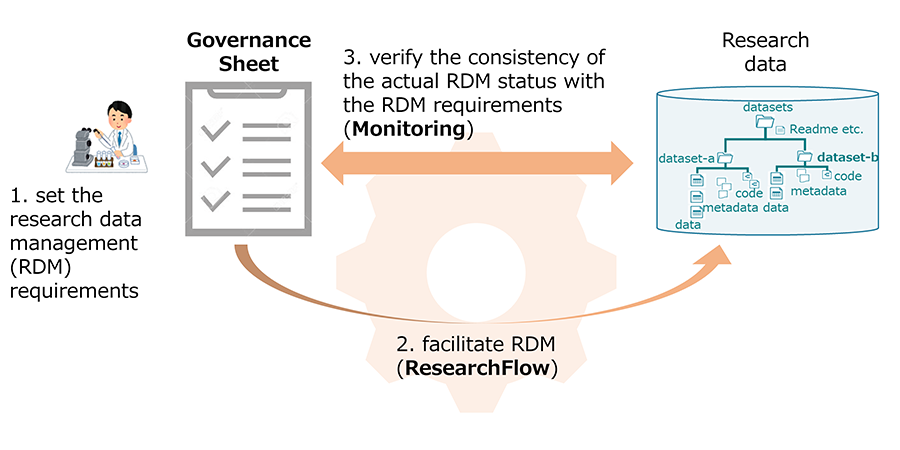Data Governance Function
Background of Data Governance Function
Expand the Scope of Research Data Access
Research data should be made available gradually from individuals to groups, and to communities. In order to smoothly expand the scope of access, it is important to organize research data on a regular basis and to maintain it at a high-quality standard.
Improve Research Data Quality
In many cases, research data is currently stored and managed at the discretion of individual researchers and research projects, and the quality of research data (richness of metadata and reproducibility) is often not well maintained. To maintain the high quality of research data on a regular basis, it is necessary to perform a mechanical verification with respect to whether the storage configuration of research data complies with standards and whether reproducible research records are kept. By providing feedback to researchers on the results of the verification and encouraging improvement, it helps to keep research data in a high-quality standard.
Uniqueness of Research Projects
A Data Management Plan (DMP) is one of the documents that illustrates the uniqueness of a research project. Although DMPs are required to be submitted to research funding agencies, etc., and are used as management documents by them, they are not fully utilized in research activities. By mechanically verifying whether a research project is carried out according to the contents of the DMP, it is possible to improve the quality and efficiency of research activities.
Roles of Data Governance Function
Monitor Research Data Quality
It carried out a mechanical verification of whether research data is managed according to the rules described in a DMP, etc.
Research Flow Based on DMP
The system supports research activities based on the contents of the DMPs; however, it is designed to allow researchers to flexibly extend it themselves, taking into account the individual nature of a wide range of research projects. It is designed to generate an executable procedure (research flow) for each DMP and to manage research data according to standard procedures, as well as to add research flows tailored to their actual research activities.
It also means that you can contribute to open methods by sharing the research flow, which is essential for the promotion of open science.

Figure 1. Overview of the data governance functions




